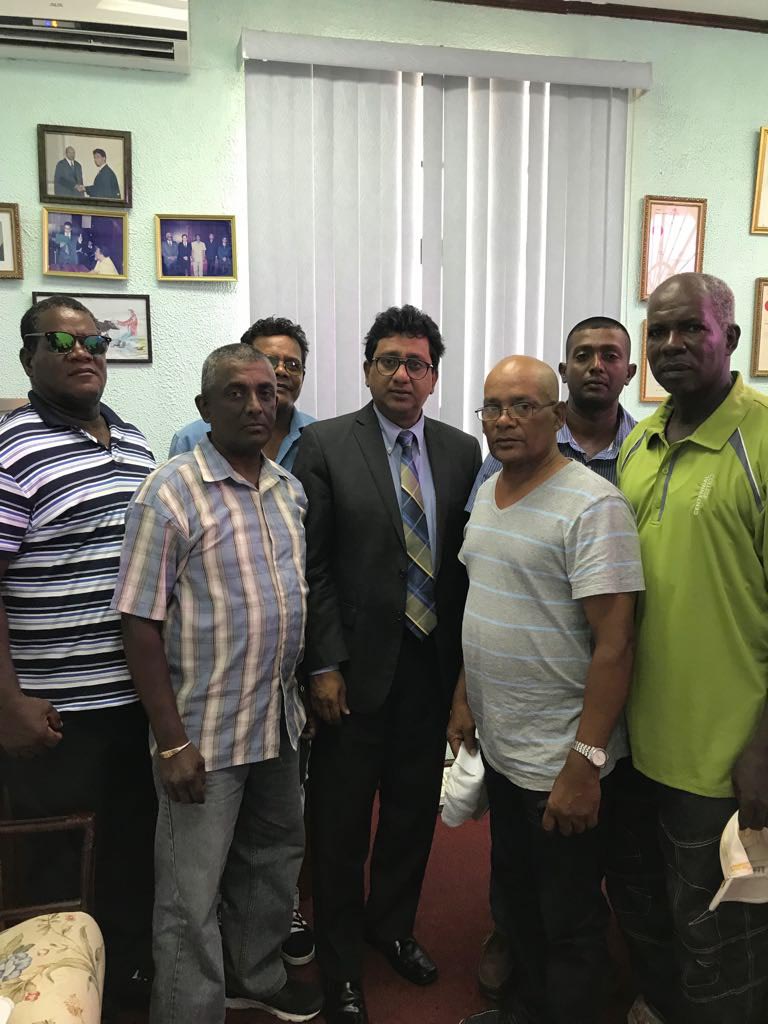The Parika/Wakenaam/Supenaam Speed Boat Association has voiced concern at a recent directive by the Maritime Administration Department (MARAD) to stop its members from selling their vessels and slots within the “turn system” that has been set up for loading passengers without its approval.
The Association, which represents approximately 60 persons who own and operate over 90 vessels, is contending that the instruction is unlawful and has since written MARAD warning that any attempt to enforce same will result in legal action being taken.
In a letter sent to MARAD on Monday, attorney Anil Nandlall, on behalf of the association, said that his clients were in receipt of an unsigned letter, dated May 11th, 2017, which advised that the selling of “turns” should cease immediately in the absence of approval from MARAD.
The missive, he said, advised that permission is granted for the sale of the owner’s vessel which is his/her personal property but the sale of the turn is prohibited and that those owners desirous of discontinuing their speed boat operation must communicate same to MARAD, which is the only authority to determine the availability of the turn. It added that there is no guarantee that the person who is purchasing the seller’s boat will be given the seller’s turn.
Nandlall said he was instructed that this “turn system” was designed and implemented by his clients since 2002, and that shortly after implementation MARAD began supervising it. “This system regulates the manner in which passenger-carrying speed boats are docked in order to be loaded with passengers. Indeed, these vessels are licensed by MARAD and as a condition of the said licence, the operators are obliged to operate their vessel in the very “turn system.” Therefore, MARAD has not only recognized this “turn system” but has institutionalized it,” he wrote.
Further, Nandlall said that over the last 15 years, whenever his clients buy or sell these vessels, they do so with the “turn” assigned to the vessel within the existing system.
“In other words, the ‘turn’ to which the vessel is assigned has become a part and parcel of the vessel, so much so, that the value of the vessel is severely influenced by the ‘turn’ that it enjoys in the ‘turn system,’” Nandlall said, before adding that the cumulative effect is that the “turn” has crystallized into the proprietary rights of the owner of the vessel.
“When these vessels are sold or purchased, the “turn system’ is specifically referred to as ‘property’ in the agreements of sale,” he further said.
It is in these circumstances, according to Nandlall, that the MARAD directive takes away and deprives his clients of their proprietary interests without compensation.
He said that given that MARAD had recognized the arrangement, as previously vessels were sold with the “turn” to which they were assigned, a legitimate expectation has accrued in his clients’ favour, which binds MARAD to continue to observe the same practice.
“MARAD is therefore estopped from altering that system to the detriment of my clients,” Nandlall said, while also noting that MARAD purports to have changed this policy without giving the Association a hearing.
Nandlall said that he has since advised his clients to “ignore” the directive and warned that any attempt to interfere with the “turn system” will be met with a strong legal challenge.






